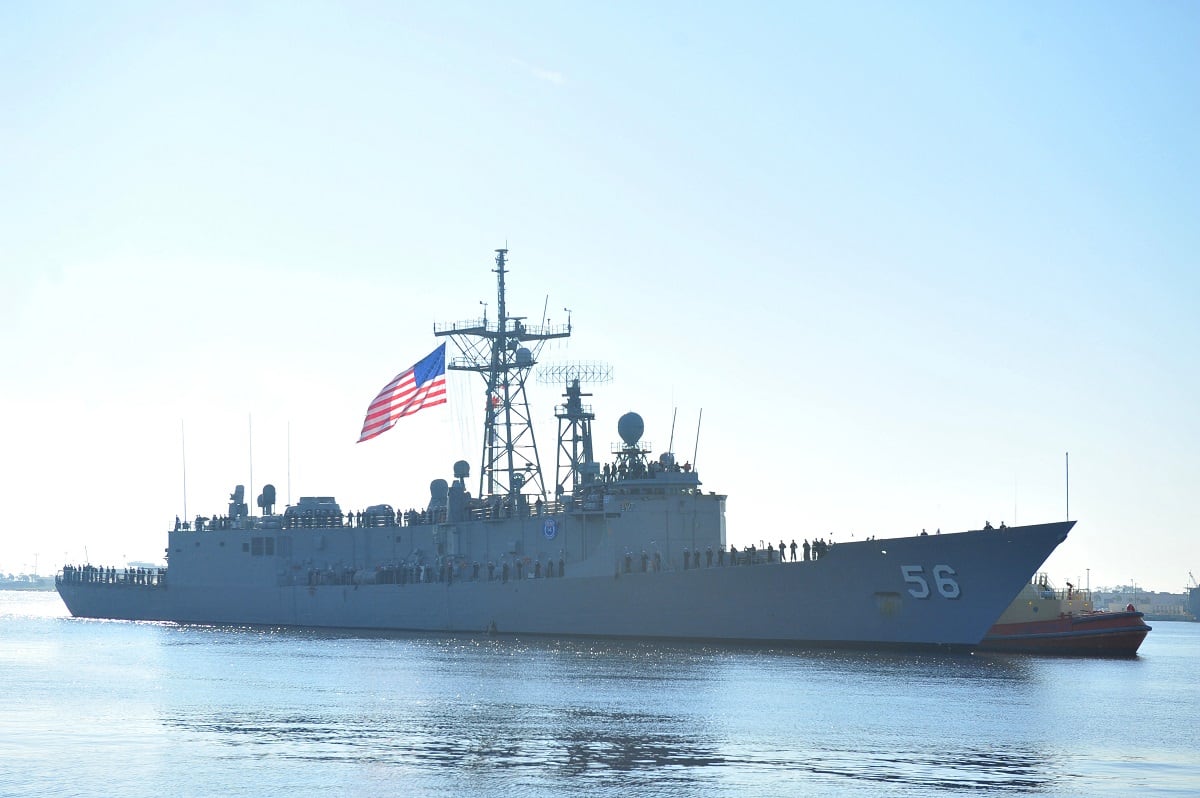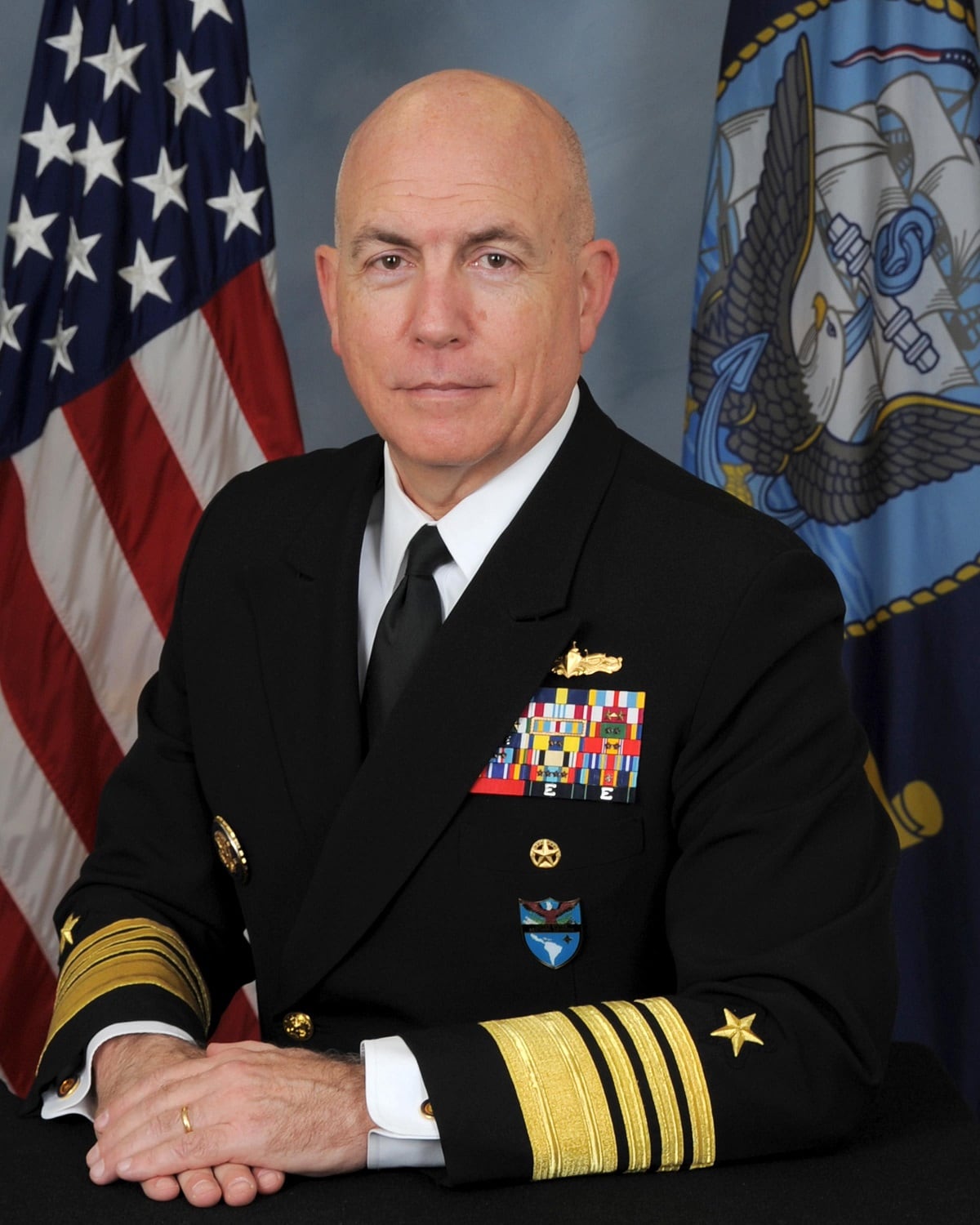The U.S. Southern Command gets only a side reference in the National Defense Strategy. It doesn’t grab the headlines of Central Command and the recently renamed Indo-Pacific Command that are home to the major strategic threats identified by defense officials.
But its head, Adm. Kurt W. Tidd, argues that the command that encompasses the Caribbean and Central and South America is facing a host of threats, including major powers such as Iranian proxies, China and Russia, while also combating gray-zone conflict, a massive refugee crisis and security challenges that directly affect the U.S. homeland.
RELATED

Tidd spoke at the Association of the United States Army’s forum on June 6, laying out the challenges his command faces. Here are five key takeaways:
1. Great power competition is happening down South.
Russia and China are not restricting their operations to their regions. They are thinking and acting globally and it’s both seen and felt in Latin America. Tidd said the two nations are flexing their international muscles in the region not through direct conflict but in the operational “gray zone,” that level just below large-scale armed conflict.
As Russia has done in both Europe and the United States, it is disrupting regional politics and trying to discredit democratic institutions and elections. It also sells arms to unfriendly actors and uses its propaganda to “sow discontent” in certain populations.
As recently as February, former U.S. Secretary of State Rex Tillerson warned Latin American countries to beware of “alarming” actions by both Russia and China in a speech.
Tidd noted a difference with how China has tried to gain influence in the region. Much of its actions have come, as in other parts of the world, notably Africa, through economic deals that using financial support seek to extract vast amounts of natural resources, often at a long-term cost.
“There are no long-term benefits from China deals,” Tidd told the audience. “China is using economic statecraft and more unscrupulous means like bribes to pull Latin American into its orbit.”
2. Terrorist groups are fundraising in our backyard.
Hezbollah has been operating in Latin America for decades and exploits corruption to raise funds for terrorist operations in the Middle East.
“Hezbollah’s been there for a long time,” Tidd said. He noted terrorist attacks in Argentina in the 1990s. Though ISIS and al-Qaida grab headlines for their actions elsewhere, Tidd said Hezbollah is the “A” Team for terrorist movements. They have used “large scale criminal activity to fund terrorism in other parts of the world.”
But just because those activities are now focused on fundraising doesn’t mean that the groups can’t shift to more direct, deadly action. “If Iran chooses to take advantage of proxies to strike out ... we can’t make the mistake of thinking it will only happen in the Middle East. Just like we can’t think Russia will only engage in Europe and China in the South China Sea.”

3. Terrorist recruiting and attacks are happening in the Caribbean.
Earlier this year U.S. military personnel from Tidd’s command participated in anti-terror raids in the small island nation of Trinidad and Tobago, though not in direct combat. A report compiled last year by the Soufan Group estimated that 130 people from Trinidad had traveled to Iraq or Syria to join the fighting. One included boxing hopeful Tariq Abdul Haqq, who was a Commonwealth Games medalist and Olympic hopeful as recently as 2013 before he joined the terrorist group and was killed in the fighting.
Tidd deferred to the nation’s government to quantify the size of the terrorist cells in the country. But he did point to Trinidad and Tobago’s recognition of a growing problem and their use of U.S. assets to better identify and train for such threats.
4. SOUTHCOM has responsibility for one of the world’s key transit points, the Panama Canal.
While much of the U.S. military presence in Latin American focuses on humanitarian aid, such as responses to hurricanes and other natural disasters, higher-order security threats remain. The Panama Canal is a major security concern, so much so that the largest military exercise held in SOUTHCOM is focused on protecting the vital shipping lane.
Last year’s PANAMAX exercise had 16 partner nations practicing ways to defend the canal from attack.
Tidd noted that this year’s exercise will be the third consecutive year it is held.
5. The Syrian refugee crisis isn’t the only such crisis having regional effects. Just look at Venezuela.
At the front of the admiral’s mind, and at the top of his Twitter posts on a regular basis, is the refugee crisis multiple countries are facing due to the ongoing exodus of Venezuelans due to hyperinflation, economic collapse, skyrocketing crime rates and sham elections.
“It is a humanitarian disaster of almost monumental proportions,” Tidd said. An estimated 4 million Venezuelans have fled to Colombia, Brazil, Argentina, Chile and other nations. The crisis is on pace to exceed the estimated 5.5 million refugees that have fled war-torn Syria.
Yet another second-order effect the refugee crisis is having is on efforts by Colombia to reintegrate FARC members following a successful peace treaty with the left-wing guerilla army, which had plagued the Colombian government for decades.
The influx of an estimated 1 million Venezuelans into Colombia is eating up the nation’s resources and forcing its leaders to choose between assisting the refugees or meeting the demands of the FARC deal.
The crisis is having a “tremendous impact” on Colombia’s ability to reintegrate FARC, Tidd said.
Todd South has written about crime, courts, government and the military for multiple publications since 2004 and was named a 2014 Pulitzer finalist for a co-written project on witness intimidation. Todd is a Marine veteran of the Iraq War.





